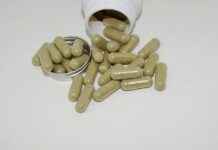This article delves into the remarkable anti-aging properties of Nicotinamide Mononucleotide (NMN), a compound that has garnered significant attention for its potential to enhance longevity and improve health in aging individuals.
What is Nicotinamide Mononucleotide (NMN)?
Nicotinamide Mononucleotide (NMN) is a naturally occurring compound found in various foods, including fruits and vegetables. It serves as a precursor to NAD+ (Nicotinamide Adenine Dinucleotide), a crucial molecule involved in energy metabolism and cellular repair.
How NMN Works in the Body
NMN plays a vital role in the biosynthesis of NAD+, which is essential for energy production, DNA repair, and maintaining cellular health. This makes NMN a key player in combating the effects of aging.
The Role of NAD+ in Aging
As we age, NAD+ levels decline, leading to reduced cellular function. Understanding how NMN elevates NAD+ levels can provide insights into its potential anti-aging effects.
Health Benefits of NMN Supplementation
- Improved metabolic function
- Enhanced physical performance
- Better cognitive health in older adults
Scientific Studies on NMN
Numerous studies have investigated the effects of NMN on aging and health, providing a scientific basis for understanding its benefits and mechanisms of action.
How to Incorporate NMN into Your Diet
Incorporating NMN into your diet can be achieved through supplementation or by consuming NMN-rich foods. Foods such as edamame, broccoli, and cucumbers are excellent sources.
Potential Side Effects and Considerations
While NMN is generally considered safe, it is essential to consult with healthcare professionals before starting supplementation to ensure safety and efficacy.
The Future of NMN Research
As research on NMN continues to evolve, future studies will likely uncover more about its long-term effects and potential applications in anti-aging therapies.
Conclusion: The Promise of NMN
Nicotinamide Mononucleotide (NMN) shows significant promise as a supplement for promoting longevity and health in aging individuals, warranting further research and exploration in the field of anti-aging medicine.

What is Nicotinamide Mononucleotide (NMN)?
Nicotinamide Mononucleotide (NMN) is a fascinating compound that has garnered significant attention in recent years due to its potential anti-aging benefits. As a naturally occurring substance, NMN is found in a variety of foods, making it accessible for many individuals. It functions primarily as a precursor to NAD+ (Nicotinamide Adenine Dinucleotide), a vital molecule that plays a crucial role in energy metabolism and cellular repair processes.
As we age, our body’s levels of NAD+ tend to decline, which can lead to various health issues and decreased cellular function. This is where NMN comes into play. By supplementing with NMN, we may be able to boost our NAD+ levels, potentially reversing some of the negative effects of aging. This compound is involved in several key biological processes, including:
- Energy Production: NAD+ is essential for the production of ATP (adenosine triphosphate), the energy currency of our cells. Increased NAD+ levels through NMN supplementation may enhance energy metabolism, helping to combat fatigue.
- DNA Repair: NAD+ activates sirtuins, proteins that are crucial for DNA repair and longevity. By promoting the activity of these proteins, NMN might support cellular health and integrity.
- Cellular Health: NMN helps maintain cellular health by participating in various metabolic pathways, which can be particularly beneficial as we age.
Research on NMN is still in its early stages, but initial studies, including both animal and human trials, suggest promising outcomes regarding its safety and efficacy. As interest in NMN grows, more comprehensive studies are needed to fully understand its potential benefits and mechanisms of action.
Incorporating NMN into your daily routine can be achieved through dietary sources or supplements, allowing individuals to harness its potential health benefits effectively. Foods rich in NMN include edamame, broccoli, and cucumbers, while supplements provide a concentrated dose for those seeking higher levels.
In conclusion, Nicotinamide Mononucleotide (NMN) presents a compelling case for its role in promoting health and longevity. As research continues to unfold, NMN may become a cornerstone in the field of anti-aging therapies, offering hope for improved quality of life as we age.

How NMN Works in the Body
Nicotinamide Mononucleotide (NMN) is a critical compound in the biosynthesis of NAD+ (Nicotinamide Adenine Dinucleotide), a coenzyme that plays a vital role in numerous biological processes. As we age, our bodies experience a natural decline in NAD+ levels, which can lead to a range of health issues associated with aging. Understanding how NMN functions in the body can illuminate its potential benefits for promoting longevity and cellular health.
The Importance of NAD+
NAD+ is essential for energy production within our cells. It facilitates the conversion of food into energy by participating in metabolic pathways. Additionally, NAD+ is crucial for DNA repair mechanisms, helping to maintain the integrity of our genetic material. When NAD+ levels drop, cellular functions can become impaired, contributing to the aging process.
- Energy Production: NMN boosts NAD+ levels, enhancing ATP synthesis, the primary energy currency of cells. This increase in energy can help combat fatigue and improve overall vitality.
- DNA Repair: NAD+ activates sirtuins, a group of proteins that play a key role in DNA repair and cellular health. By enhancing NAD+ levels, NMN may support the body’s ability to repair damaged DNA, which is crucial for longevity.
- Cellular Health: NMN contributes to maintaining cellular homeostasis, ensuring that cells function optimally. This support is vital for preventing age-related degenerative diseases.
Research Insights
Recent studies have shown that NMN supplementation can effectively elevate NAD+ levels in humans, leading to improved metabolic function and enhanced physical performance. These findings suggest that NMN may be a valuable tool in the quest for healthier aging.
In conclusion, NMN serves as a fundamental player in the biosynthesis of NAD+, significantly impacting energy production, DNA repair, and overall cellular health. Its role in combating the effects of aging makes it a promising supplement for those looking to enhance their longevity and maintain vitality as they age.
The Role of NAD+ in Aging
NAD+ (Nicotinamide Adenine Dinucleotide) is a vital coenzyme found in every living cell. It plays a critical role in various biological processes, including energy metabolism, DNA repair, and cell signaling. As we age, NAD+ levels naturally decline, leading to a multitude of cellular dysfunctions that can accelerate the aging process.
Understanding NAD+ Decline
Research indicates that the decline in NAD+ is linked to several age-related conditions. This reduction affects the body’s ability to produce energy, repair DNA, and maintain overall cellular health. Consequently, understanding the mechanisms behind NAD+ decline is essential for developing effective anti-aging strategies.
- Energy Production: NAD+ is crucial for the conversion of food into energy. Lower levels of NAD+ can result in decreased ATP (adenosine triphosphate) production, leading to fatigue and decreased physical performance.
- DNA Repair: NAD+ activates enzymes called sirtuins, which are involved in DNA repair and cellular stress responses. Insufficient NAD+ levels can impair these vital repair mechanisms, increasing the risk of cellular damage.
- Cellular Communication: NAD+ is involved in signaling pathways that regulate various cellular functions. A decline in NAD+ can disrupt these pathways, contributing to inflammation and other age-related diseases.
NAD+ and Healthy Aging
Elevating NAD+ levels through supplementation with compounds like Nicotinamide Mononucleotide (NMN) has gained attention for its potential to mitigate the effects of aging. Studies suggest that increasing NAD+ levels can enhance energy metabolism, promote DNA repair, and improve overall cellular function.
Conclusion
In summary, the decline of NAD+ with age is a significant factor in the aging process. By understanding its role and exploring ways to boost NAD+ levels, such as through NMN supplementation, we can potentially unlock new avenues for promoting healthier aging and extending lifespan.
Cellular Energy Production
is a fundamental process that occurs in all living organisms, allowing cells to generate the energy required for various biological functions. At the core of this energy production is Adenosine Triphosphate (ATP), often referred to as the energy currency of the cell.
As we age, the levels of Nicotinamide Adenine Dinucleotide (NAD+) in our cells tend to decline. This reduction impacts the efficiency of ATP production, leading to a decrease in overall energy metabolism. Nicotinamide Mononucleotide (NMN), a precursor to NAD+, plays a crucial role in replenishing NAD+ levels, thereby enhancing the cellular energy production process.
By supplementing with NMN, individuals may experience improved energy metabolism, which can help combat feelings of fatigue often associated with aging. Studies suggest that higher NAD+ levels can lead to increased ATP synthesis, promoting better physical performance and enhanced endurance.
| Benefits of NMN Supplementation | Impact on Cellular Energy |
|---|---|
| Increased NAD+ Levels | Enhances ATP production |
| Improved Metabolic Function | Boosts energy efficiency |
| Reduced Fatigue | Supports physical endurance |
Furthermore, NMN is involved in activating various proteins known as sirtuins, which are essential for regulating cellular processes including energy metabolism, DNA repair, and inflammation. By promoting the activity of these proteins, NMN supplementation may contribute to healthier aging.
In conclusion, the role of NMN in enhancing cellular energy production highlights its potential as a valuable supplement for those looking to maintain vitality and combat age-related fatigue. As research continues to evolve, the implications of NMN for energy metabolism and overall health will become increasingly important.
DNA Repair Mechanisms
The Role of NAD+ in DNA Repair Mechanisms
NAD+ (Nicotinamide Adenine Dinucleotide) is an essential coenzyme found in every cell of our body, playing a pivotal role in various biological processes, including DNA repair and cellular metabolism. As we age, NAD+ levels naturally decline, which can lead to a decrease in the efficiency of . This decline may contribute to the aging process and the onset of age-related diseases.
Activation of Sirtuins
One of the most critical functions of NAD+ is its involvement in activating sirtuins, a family of proteins that regulate cellular health and longevity. Sirtuins are known to enhance DNA repair by:
- Facilitating the repair of damaged DNA strands.
- Maintaining genomic stability.
- Regulating cellular stress responses.
Through these mechanisms, sirtuins help mitigate the effects of aging and promote healthier cellular function.
Benefits of NMN Supplementation
Supplementing with Nicotinamide Mononucleotide (NMN) has been shown to boost NAD+ levels, thereby enhancing sirtuin activity. This increase in NAD+ may lead to:
- Improved DNA integrity.
- Enhanced cellular repair processes.
- Potentially longer lifespan and healthier aging.
Conclusion
Understanding the role of NAD+ in activating sirtuins and promoting DNA repair mechanisms is crucial for developing strategies aimed at healthy aging. NMN supplementation presents a promising approach to maintaining NAD+ levels, thereby supporting cellular health and longevity.
Health Benefits of NMN Supplementation
Nicotinamide Mononucleotide (NMN) has emerged as a promising supplement in the realm of health and wellness, particularly for older adults. Recent research suggests that NMN supplementation may offer a variety of health benefits that can significantly enhance the quality of life as we age.
- Improved Metabolic Function: NMN plays a crucial role in boosting the levels of NAD+ in the body, which is essential for metabolic processes. Enhanced NAD+ levels can lead to improved energy metabolism, allowing for better utilization of nutrients and potentially aiding in weight management.
- Enhanced Physical Performance: Studies have indicated that NMN supplementation can enhance physical performance, particularly in older adults. By increasing energy production at the cellular level, NMN may help improve endurance and overall physical capacity.
- Better Cognitive Health: Research has shown that NMN may have neuroprotective effects, helping to maintain cognitive function as we age. This can lead to improved memory, focus, and overall brain health, which are critical for maintaining independence in later years.
In addition to these benefits, NMN supplementation is associated with the activation of sirtuins, proteins that play a vital role in regulating cellular health and longevity. By supporting DNA repair mechanisms and cellular resilience, NMN can contribute to healthier aging.
Overall, the health benefits of NMN supplementation are becoming increasingly recognized in the scientific community. As more studies are conducted, it is anticipated that the understanding of NMN’s role in promoting health and longevity will continue to expand, paving the way for its use in anti-aging therapies.
As always, it is recommended to consult with a healthcare professional before starting any new supplementation, especially for individuals with pre-existing health conditions or those currently taking medications.
Conclusion: NMN supplementation holds significant promise for enhancing metabolic function, physical performance, and cognitive health in older adults, making it a valuable consideration for those looking to improve their overall well-being.

Scientific Studies on NMN
Numerous studies have delved into the effects of Nicotinamide Mononucleotide (NMN) on aging and overall health. These investigations provide a robust scientific foundation for understanding NMN’s potential benefits and the mechanisms through which it operates within the body.
Research has consistently shown that NMN plays a crucial role in boosting levels of NAD+ (Nicotinamide Adenine Dinucleotide), a vital coenzyme involved in numerous cellular processes. As individuals age, NAD+ levels naturally decline, leading to a decrease in cellular function and an increase in age-related diseases. By supplementing with NMN, studies suggest that it may be possible to counteract these declines.
| Study Type | Key Findings |
|---|---|
| Animal Studies | Research indicates that NMN supplementation can enhance lifespan and improve metabolic health in mice, suggesting similar effects may occur in humans. |
| Human Clinical Trials | Initial trials have demonstrated that NMN is safe for human consumption and can significantly increase NAD+ levels, which may lead to improved muscle function and energy metabolism. |
In addition to lifespan extension, NMN has been linked to improved cognitive function. Some studies have shown that NMN can enhance brain health by promoting neuronal health and reducing inflammation, which is critical as cognitive decline is a common concern in aging populations.
Furthermore, NMN’s potential benefits extend to metabolic health. Research indicates that NMN supplementation may help regulate blood sugar levels and improve insulin sensitivity, which are crucial factors in preventing metabolic disorders such as diabetes.
Overall, the accumulating evidence from various studies suggests that NMN supplementation could be a promising strategy for enhancing health and longevity. As research continues to expand, it is essential to stay informed about the latest findings to understand fully NMN’s role in anti-aging therapies.
Animal Studies
Animal research has provided valuable insights into the potential benefits of Nicotinamide Mononucleotide (NMN) in promoting longevity and enhancing health span. Numerous studies conducted on various animal models, including mice and rats, have indicated that NMN supplementation can lead to significant improvements in lifespan and overall health. These findings are particularly exciting as they suggest that NMN may have similar effects in humans, although further research is necessary to confirm this.
In these studies, NMN has been shown to elevate levels of NAD+ (Nicotinamide Adenine Dinucleotide), a crucial coenzyme involved in numerous biological processes. As NAD+ levels decline with age, the corresponding decline in energy metabolism and cellular repair can contribute to the aging process. By supplementing with NMN, researchers observed an increase in NAD+ levels, which in turn enhanced cellular functions and improved metabolic health.
One notable study published in the journal Cell Metabolism demonstrated that NMN administration in aged mice resulted in improved physical performance, increased muscle strength, and enhanced endurance. Furthermore, the mice exhibited better insulin sensitivity and improved lipid profiles, indicating a positive impact on metabolic health. These findings highlight NMN’s potential role in combating age-related diseases and improving quality of life in older populations.
Moreover, animal studies have also indicated that NMN may play a role in promoting DNA repair mechanisms. By activating sirtuins, proteins that help maintain genomic integrity, NMN supplementation may contribute to healthier aging and a reduced risk of age-related diseases.
While the results from animal studies are promising, it is essential to approach these findings with caution. The translation of these benefits to humans requires rigorous clinical trials to confirm safety and efficacy. Nevertheless, the current evidence underscores the potential of NMN as a groundbreaking supplement in the field of anti-aging research.
In conclusion, the findings from animal studies present a compelling case for the potential benefits of NMN in extending lifespan and promoting health span. As research progresses, we may uncover even more about NMN’s capabilities and its applications in human health.
Human Clinical Trials
have emerged as a significant focus in the exploration of Nicotinamide Mononucleotide (NMN) as a potential anti-aging supplement. These trials are crucial for understanding how NMN affects human health and longevity.
Recent studies have begun to investigate the safety and efficacy of NMN in human subjects, providing valuable insights into its potential benefits. The primary goal of these trials is to assess how NMN supplementation can influence various health markers associated with aging.
- Trial Design: Most human clinical trials are designed to evaluate NMN’s effects on metabolic health, cognitive function, and overall well-being. Participants are typically administered NMN in controlled doses to monitor any changes in their health status.
- Results: Preliminary findings indicate that NMN supplementation may lead to improvements in metabolic parameters, such as insulin sensitivity and lipid profiles. These results are promising, suggesting that NMN could play a role in enhancing metabolic health in aging individuals.
- Safety Assessment: Safety is a paramount concern in clinical trials. Initial results indicate that NMN is generally well-tolerated, with few reported side effects. Commonly noted side effects include mild gastrointestinal discomfort, which is manageable for most participants.
The significance of these trials cannot be overstated. They not only provide a scientific basis for NMN’s use as a dietary supplement but also pave the way for future research into its long-term effects. As the body of evidence grows, NMN may well become a cornerstone in the field of anti-aging therapies.
In conclusion, ongoing human clinical trials are vital for unraveling the complexities of NMN’s impact on human health. With promising initial findings, NMN holds the potential to be a significant player in promoting longevity and improving health outcomes in aging populations.

How to Incorporate NMN into Your Diet
Integrating Nicotinamide Mononucleotide (NMN) into your daily routine can be a straightforward process, providing you with the potential anti-aging benefits associated with this remarkable compound. Here are some effective strategies to ensure you are getting enough NMN in your diet:
- Supplementation: One of the most direct ways to increase NMN levels is through high-quality supplements. NMN supplements are widely available in various forms, including capsules and powders. It is essential to choose products that have undergone third-party testing to ensure their purity and potency.
- NMN-Rich Foods: Certain foods naturally contain NMN. Incorporating these into your meals can help boost your NMN intake. Some of the richest sources include:
- Edamame
- Broccoli
- Cucumbers
- Avocados
- Tomatoes
- Balanced Diet: A well-rounded diet that includes a variety of fruits, vegetables, and whole grains can support overall health and may enhance the effectiveness of NMN. Foods rich in antioxidants can help combat oxidative stress, complementing the benefits of NMN.
- Consultation with Healthcare Professionals: Before starting any new supplement regimen, especially if you have existing health conditions or are taking medications, it is advisable to consult with a healthcare provider. They can provide personalized guidance based on your health needs.
In conclusion, incorporating NMN into your diet can be achieved through both supplementation and dietary choices. By being mindful of your intake and seeking professional advice, you can effectively harness the potential anti-aging benefits of NMN, promoting a healthier and more vibrant life.
NMN-Rich Foods
Nicotinamide Mononucleotide (NMN) is a powerful compound that can play a significant role in boosting your health, particularly as you age. One of the best ways to increase your NMN levels naturally is through your diet. Incorporating certain foods into your meals can provide a rich source of this vital nutrient.
Here are some foods that are known to be rich in NMN:
- Edamame: These young soybeans are not only delicious but also packed with NMN. They can be enjoyed steamed, in salads, or as a healthy snack.
- Broccoli: This nutrient-dense vegetable is known for its health benefits, including its NMN content. Adding broccoli to your meals can enhance your nutrient intake significantly.
- Cucumbers: Refreshing and hydrating, cucumbers are another excellent source of NMN. They can be eaten raw in salads or as a crunchy snack.
- Avocados: Not only are they rich in healthy fats, but avocados also contain NMN, making them a great addition to your diet.
- Tomatoes: These juicy fruits are versatile and can be included in various dishes while providing a good amount of NMN.
Including these in your daily diet can help support your body’s natural production of this important compound, contributing to overall health and well-being. It’s essential to focus on a balanced diet that incorporates a variety of these foods to maximize their benefits.
For those looking to enhance their NMN intake further, consider consulting with a healthcare professional or nutritionist to tailor your diet to meet your specific health needs.
Supplementation Options
For individuals looking to enhance their wellness through Nicotinamide Mononucleotide (NMN), there are various available. Understanding these options is crucial for selecting the right product that meets individual health needs and goals.
When considering NMN supplements, it’s important to note that they come in several forms, each with distinct characteristics:
- Capsules: These are the most common form of NMN supplements. They are easy to take and often come in standardized doses, making it simple to monitor intake.
- Powder: NMN powder can be mixed with liquids or foods, offering flexibility in dosing. This form may appeal to those who prefer customizing their intake.
- Sublingual Tablets: These dissolve under the tongue, allowing for faster absorption into the bloodstream. This method may enhance bioavailability compared to traditional capsules.
- Liquid Form: NMN in liquid form is another option, providing quick absorption. Some users find this format more convenient and palatable.
When choosing an NMN supplement, consider the following factors:
- Dosage: NMN supplements typically range from 125 mg to 500 mg per serving. It’s essential to start with a lower dose and gradually increase based on individual tolerance and health goals.
- Purity: Look for products that are third-party tested for purity and potency to ensure you are getting a high-quality supplement.
- Brand Reputation: Choose reputable brands that provide transparent information about their sourcing, manufacturing processes, and ingredient lists.
Additionally, individuals should consult healthcare professionals before starting any new supplement regimen, particularly if they have existing health conditions or are taking other medications. This step ensures safety and helps tailor the supplementation approach to personal health needs.
In conclusion, by understanding the various NMN supplementation options and their respective benefits, individuals can make informed choices to support their health and wellness journey.

Potential Side Effects and Considerations
While Nicotinamide Mononucleotide (NMN) is generally regarded as a safe supplement, it is crucial for users to remain informed about possible side effects and to seek guidance from healthcare professionals prior to initiating supplementation.
Understanding Side Effects
Though many individuals tolerate NMN well, some may experience mild side effects. These can include:
- Gastrointestinal discomfort
- Nausea
- Fatigue
These side effects are often temporary and may subside as the body adjusts to the supplement. However, it is important to monitor your body’s response and discontinue use if adverse effects persist.
Consulting Healthcare Professionals
Before starting any new supplement, it is essential to consult with a healthcare provider, especially for individuals with pre-existing health conditions or those taking other medications. A healthcare professional can help determine the right dosage and assess any potential interactions with other treatments.
Individual Variability
Each person’s body reacts differently to supplements. Factors such as age, health status, and lifestyle can influence how NMN is metabolized and its effects on the body. Therefore, a personalized approach is recommended.
Conclusion
In summary, while NMN supplementation holds promise for various health benefits, awareness of potential side effects and the importance of professional consultation cannot be overstated. Taking proactive steps can help ensure a safe and effective experience with NMN.
Possible Side Effects
While Nicotinamide Mononucleotide (NMN) is widely regarded as a safe supplement with numerous health benefits, it is essential to be aware of potential side effects that some individuals may experience. Understanding these effects can help users make informed decisions and optimize their supplementation experience.
- Gastrointestinal Discomfort: Some users report experiencing mild gastrointestinal issues, such as bloating, gas, or nausea, particularly when starting NMN supplementation. These symptoms are generally temporary and may subside as the body adjusts to the new supplement.
- Headaches: A few individuals have noted headaches after taking NMN, which could be attributed to changes in energy metabolism or hydration levels. Staying adequately hydrated may help mitigate this effect.
- Fatigue: In rare cases, some users have reported feelings of fatigue or lethargy. It is important to monitor energy levels and adjust the dosage accordingly.
- Insomnia: A small number of individuals have experienced difficulty sleeping when taking NMN, especially if taken later in the day. It may be beneficial to take NMN in the morning to avoid potential sleep disturbances.
Monitoring your body’s response to NMN is crucial for ensuring a positive experience. Keeping a journal of any side effects can help identify patterns and determine whether adjustments to dosage or timing are necessary.
Before starting NMN supplementation, it is always advisable to consult with a healthcare professional, especially for individuals with pre-existing health conditions or those taking other medications. This consultation can help ensure that NMN is a suitable option and that any potential interactions are considered.
In summary, while NMN has shown great promise in promoting health and longevity, being aware of possible side effects and discussing them with a healthcare provider can enhance the overall experience and effectiveness of supplementation.
Consulting Healthcare Professionals
is a critical step in ensuring the safety and effectiveness of any new supplement regimen, particularly for individuals with pre-existing health conditions. As the popularity of dietary supplements continues to rise, it becomes increasingly important to understand the implications of introducing new substances into one’s routine.
Before incorporating supplements like Nicotinamide Mononucleotide (NMN) into your diet, it is essential to consult with a healthcare provider. This consultation allows for a thorough evaluation of your health history, potential drug interactions, and the specific benefits and risks associated with the supplement.
- Understanding Personal Health: Each individual’s health status is unique. A healthcare professional can help identify any underlying conditions that may affect how your body responds to NMN.
- Assessing Nutritional Needs: A healthcare provider can evaluate your dietary intake and determine if a supplement is necessary or if you can achieve your goals through diet alone.
- Monitoring Side Effects: While NMN is generally considered safe, some individuals may experience side effects. A healthcare provider can guide you on what to watch for and when to seek help.
Furthermore, healthcare professionals can provide evidence-based information regarding the efficacy of NMN. They can help you understand the latest research findings, ensuring that your decisions are informed by scientific data rather than anecdotal evidence.
In summary, consulting with healthcare professionals before starting any new supplement regimen is not just a precaution; it is a necessary step towards achieving optimal health and well-being. This ensures that you embark on your health journey with confidence and clarity.

The Future of NMN Research
As the field of Nicotinamide Mononucleotide (NMN) research continues to advance, scientists are increasingly optimistic about uncovering its long-term effects and potential applications in anti-aging therapies. The ongoing investigations into NMN’s mechanisms and benefits are poised to reshape our understanding of aging and health management.
Future studies will likely delve deeper into the molecular pathways influenced by NMN. Researchers are particularly interested in how NMN affects cellular processes related to aging, such as mitochondrial function and oxidative stress. Understanding these interactions could lead to groundbreaking therapies aimed at enhancing longevity and quality of life.
Moreover, as clinical trials expand, we can expect to see more comprehensive data on NMN’s safety and efficacy in diverse populations. This includes examining its effects on various age-related conditions, such as metabolic disorders and neurodegenerative diseases. The insights gained could pave the way for NMN to be integrated into mainstream health practices.
Another exciting area of exploration is the potential synergistic effects of NMN when combined with other supplements or lifestyle interventions. Researchers are investigating how NMN might work alongside exercise and dietary changes to maximize its health benefits. This holistic approach could provide individuals with more effective strategies for managing aging.
In conclusion, the future of NMN research holds great promise. As studies continue to evolve, we anticipate a clearer picture of NMN’s role in promoting health and longevity. With the potential to revolutionize anti-aging therapies, NMN could soon become a cornerstone in the quest for healthier aging.
Emerging Research Trends
Recent studies are delving into the broader implications of Nicotinamide Mononucleotide (NMN) beyond its well-known anti-aging properties. This compound, primarily recognized for its role in enhancing cellular health and longevity, is now being investigated for its potential benefits in various health conditions.
One of the most exciting areas of research is NMN’s impact on metabolic disorders. As obesity and diabetes continue to rise globally, scientists are exploring how NMN supplementation can improve insulin sensitivity and promote better metabolic function. Initial studies suggest that NMN may help regulate blood sugar levels and enhance energy expenditure, making it a promising candidate for managing these prevalent health issues.
Furthermore, NMN is being studied for its potential effects on cardiovascular health. Research indicates that NMN can improve endothelial function, which is crucial for maintaining healthy blood vessels. By promoting better blood flow and reducing oxidative stress, NMN could play a significant role in preventing heart disease, a leading cause of mortality worldwide.
Another intriguing avenue of research is NMN’s influence on neurological health. With the aging population, neurodegenerative diseases such as Alzheimer’s and Parkinson’s are becoming increasingly common. Studies are investigating how NMN may enhance cognitive function and protect against age-related decline by boosting NAD+ levels in the brain, thereby supporting neuronal health and function.
As research continues, the potential applications of NMN could extend into areas such as athletic performance and immune system support. The ability of NMN to enhance energy metabolism may aid athletes in improving their performance and recovery times, while its anti-inflammatory properties could bolster the immune response, particularly in older adults.
In summary, the exploration of NMN’s benefits is expanding rapidly, revealing its potential to address a variety of health conditions. As we gain a deeper understanding of its mechanisms, NMN may emerge as a versatile supplement, offering solutions beyond anti-aging and enhancing overall health and wellness.
NMN in Anti-Aging Therapies
The exploration of Nicotinamide Mononucleotide (NMN) as a potential component in anti-aging therapies is an area generating significant interest in the scientific community. As we age, the body’s natural levels of NAD+ (Nicotinamide Adenine Dinucleotide) decrease, leading to various age-related health issues. By integrating NMN into therapeutic protocols, researchers aim to counteract these effects, enhancing both longevity and quality of life.
Understanding NMN’s Role
NMN is a crucial precursor to NAD+, a molecule essential for energy metabolism and cellular repair. Through supplementation, NMN is believed to elevate NAD+ levels, potentially restoring youthful cellular functions. This restoration can lead to improved metabolic health, enhanced energy levels, and better cognitive functions, which are vital aspects of healthy aging.
Research Insights
- Animal Studies: Research conducted on various animal models has shown promising results, indicating that NMN supplementation can improve lifespan and health span.
- Human Clinical Trials: Early-stage clinical trials are beginning to validate these findings in humans, suggesting NMN’s safety and efficacy as an anti-aging supplement.
Potential Benefits of NMN in Anti-Aging
| Benefit | Description |
|---|---|
| Enhanced Energy Levels | Boosting NAD+ levels can lead to increased ATP production, improving overall energy and vitality. |
| Improved Metabolic Health | NMN may enhance insulin sensitivity and metabolic function, reducing the risk of age-related diseases. |
| Cognitive Function | By supporting neuronal health, NMN could help maintain cognitive functions and memory in older adults. |
Conclusion
The integration of NMN into anti-aging therapies represents a promising frontier in the quest for longevity and improved quality of life. As research progresses, we may uncover even more benefits and applications of NMN, paving the way for innovative treatments that address the challenges of aging.

Conclusion: The Promise of NMN
The Anti-Aging Benefits of Nicotinamide Mononucleotide (NMN)
Nicotinamide Mononucleotide (NMN) is emerging as a significant player in the field of anti-aging medicine. This compound, which is a derivative of vitamin B3, has garnered attention for its potential to enhance longevity and improve overall health in aging individuals. As research progresses, NMN’s role in promoting cellular health and vitality becomes increasingly clear.
What is Nicotinamide Mononucleotide (NMN)?
NMN is a naturally occurring compound found in various foods, including edamame, broccoli, and cucumbers. It acts as a precursor to NAD+ (Nicotinamide Adenine Dinucleotide), a vital molecule involved in energy metabolism, DNA repair, and cell function.
How NMN Works in the Body
As we age, our body’s levels of NAD+ decline, which can lead to decreased energy production and increased cellular damage. NMN supplementation helps to restore NAD+ levels, thereby enhancing energy metabolism and supporting essential cellular processes, including DNA repair and maintenance of cellular health.
Health Benefits of NMN Supplementation
- Improved Metabolic Function: NMN has shown promise in enhancing metabolic health, potentially aiding in weight management and energy levels.
- Enhanced Physical Performance: Studies suggest that NMN may improve endurance and physical capabilities in older adults.
- Cognitive Health: NMN supplementation might support brain health, improving memory and cognitive function.
Scientific Studies on NMN
Numerous studies have investigated the effects of NMN on aging. Animal studies have indicated that NMN can extend lifespan and improve health span, while recent human clinical trials are beginning to explore its safety and efficacy.
How to Incorporate NMN into Your Diet
You can incorporate NMN into your diet through food sources or supplements. For those looking for higher doses, NMN supplements are available, allowing individuals to harness its benefits effectively.
Potential Side Effects and Considerations
While NMN is generally regarded as safe, some individuals may experience mild gastrointestinal discomfort. It’s advisable to consult with healthcare professionals before starting any new supplement regimen.
The Future of NMN Research
As research continues, the potential applications of NMN in anti-aging therapies and overall health are vast. Emerging studies are exploring NMN’s broader implications on various health conditions, potentially expanding its use beyond just anti-aging.
In conclusion, Nicotinamide Mononucleotide (NMN) presents significant promise as a supplement for promoting longevity and health in aging individuals. Its role in enhancing NAD+ levels and supporting cellular functions makes it a noteworthy candidate for further research in the field of anti-aging medicine.














